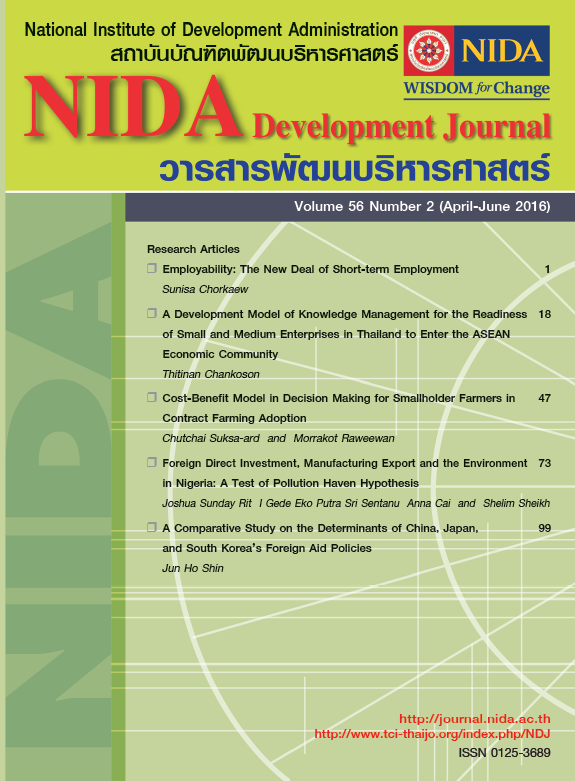Cost-Benefit Model in Decision Making for Smallholder Farmers in Contract Farming Adoption
Keywords:
Smallholder Farmers, Contract Farming, Minimum Land-use, Net Present Value, Applied OptimizationAbstract
Smallholder farmers have a small area of land and have very limited access to capital. Contract farming is an alternative to liberate them from their limitations. This research applies net present value breakeven analysis and an optimization model in a cost-benefit approach to calculate the minimum land size for investment in contract farming. This analysis is based on land size, loan interest rate, and the timing of investment in no-contract farming and contract farming adoption. Numerical results which are obtained from baby corn farming in Thailand suggest that the model could provide essential information for smallholder farmers in deciding whether or not to adopt contract farming. It could be useful for smallholder farmers, policymakers, and financial institutions for decision on contract farming.





